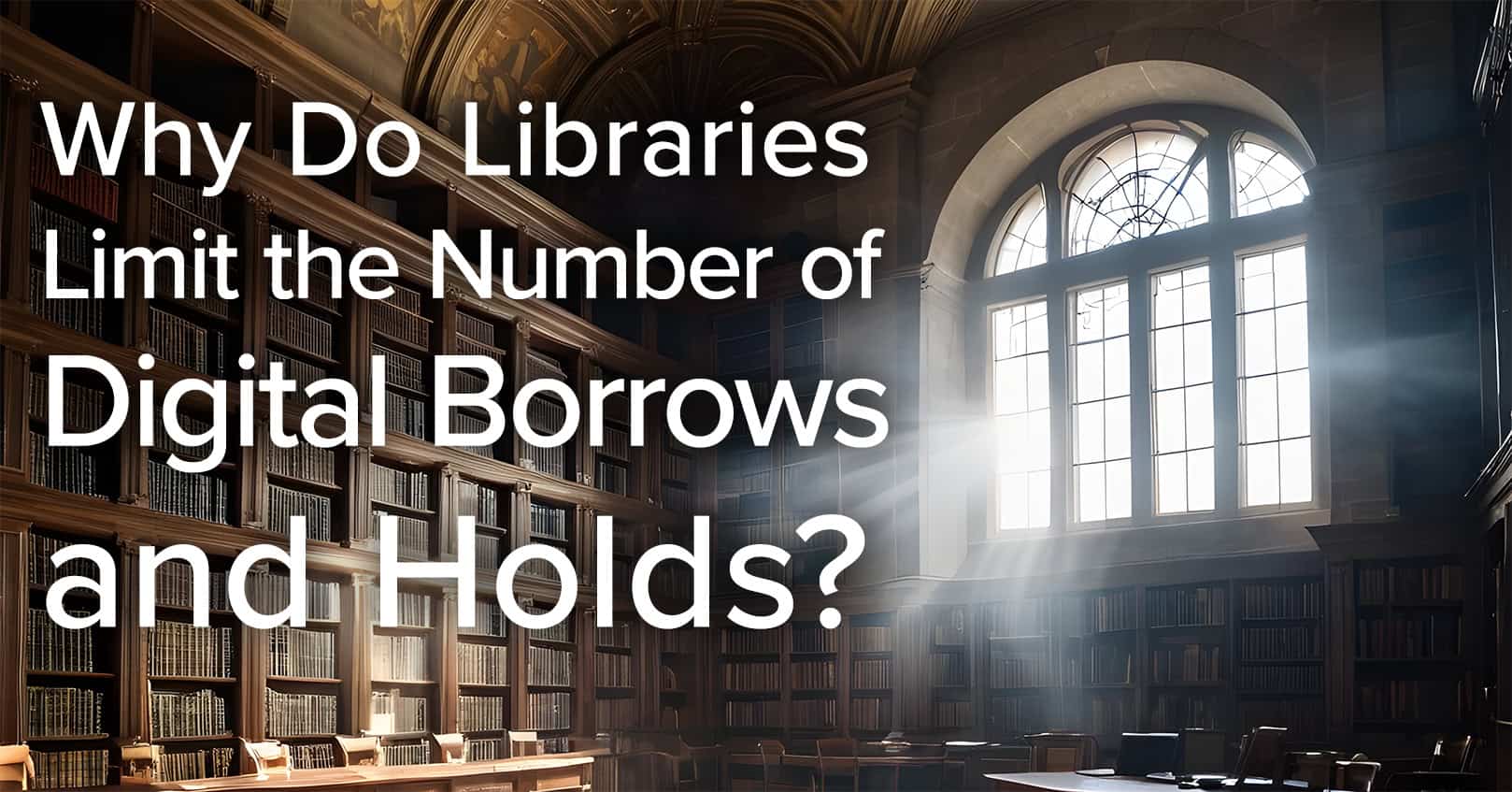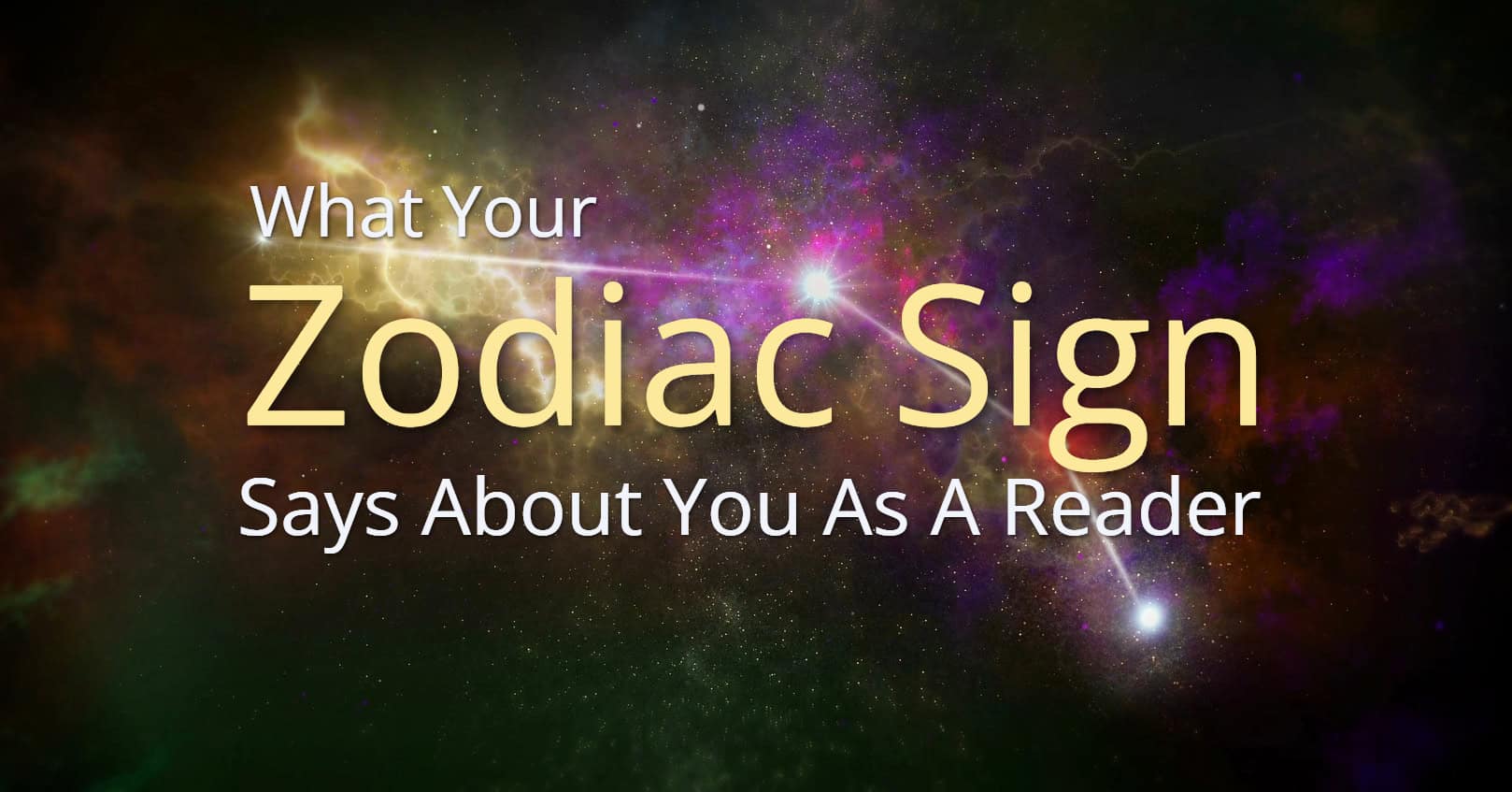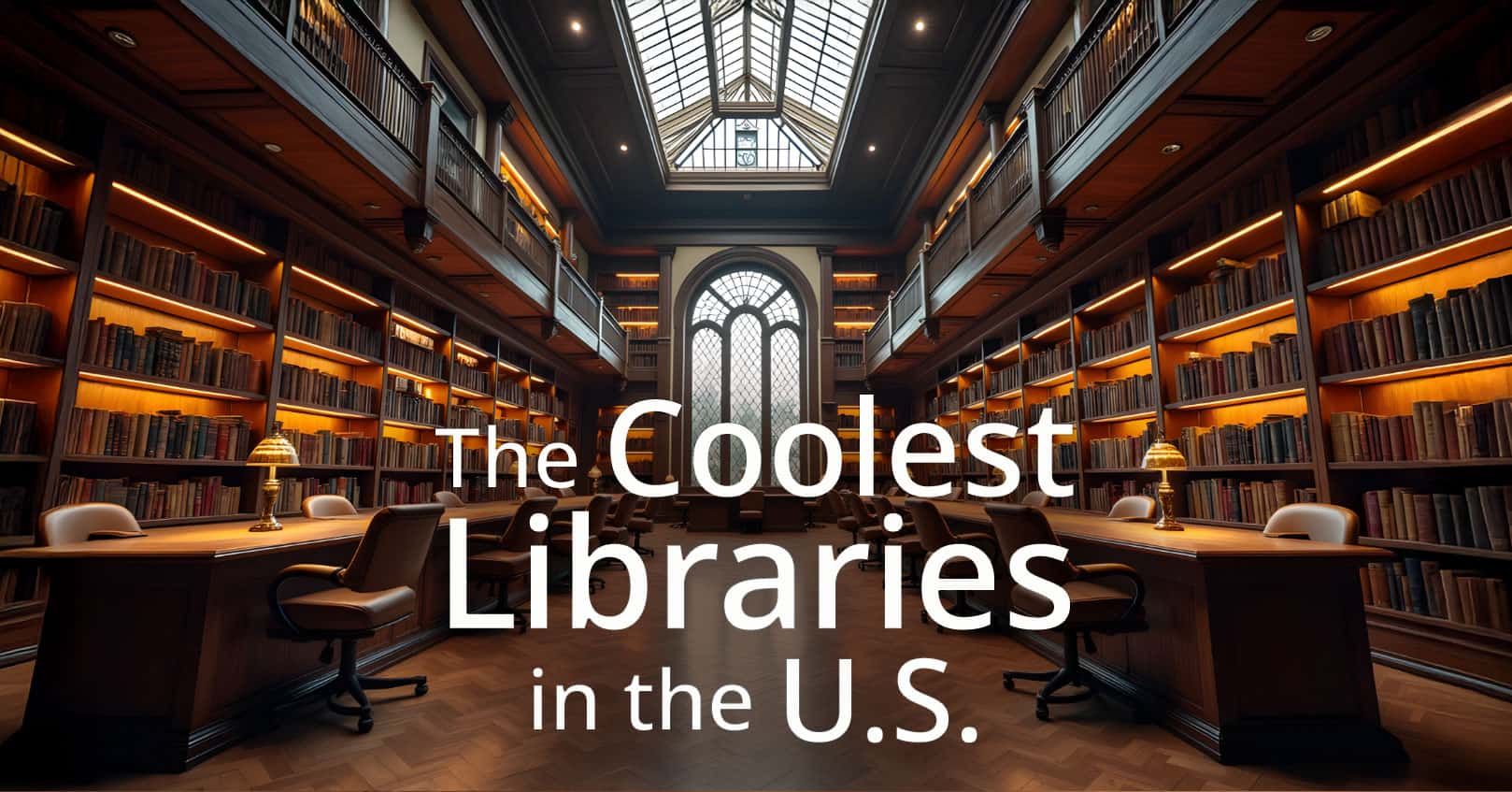
We love libraries, but the way they work is often a mystery. Especially with the rise of Libby, Hoopla, and other digital library services. Many patrons, myself included, have wondered, why is there a limit to this digital content when digital content can be duplicated and shared for virtually free?
That’s exactly what TikTok user Stephreads asked, and Librarian Ryan was kind enough to fill us all in on the answer. And no, the answer isn’t just that libraries are mean and don’t want you to enjoy unlimited books. Instead, it’s a complex system consisting of outright purchases, metered access, and pay-for-play.
You can watch the original TikTok video below, or read through the transcript we’ve added below if you don’t enjoy videos.
The question: “What is the financial incentive for the library to have a digital cap on holds and borrows?”
@librarianryan1 #stitch with @stephreads 📚 why libraries have digial caps on holds ir on how much you can difitally check out in a specific time period. #librariansoftiktok #booktok ♬ original sound – LibrarianRyan
The answer:
“Ebooks cost libraries more than they cost you. A lot more. And it’s broken up differently depending on your platform. If you’re using cloud library versus boundless versus Libby, etc., then it’s also divided by how are they servicing you.
“So, for example, libraries can buy books outright and they cost. You think they might cost as much as you buy them for. No. A lot of times they cost a lot more.
“Take James Patterson, for example. He is the bane of most librarian’s existence, so I’ll use him. It’s not unusual for one of his (e)books to outright cost a library between 60 and 80 dollars for a library copy. Per book. That’s not for a whole series, that is per book for one copy. And that’s normally that we can keep the book as long as we have the service and sometimes even transfer it if we change services.
“Then you have metered access. Macmillan is one of the services that started this. I lived through it when they started this and hated it. Where you buy a book from Macmillian, it would cost the library the same thing it would cost you. Except, you can only check it out 26 times. And most libraries check their print books out way more than 26 times. But Macmillian said 26.
“Think about somebody like Scholastic. I want to say their meter is 52 times. But take books like The Magic Treehouse or Goosebumps that 10, 20 years later kids and adults are still reading. Do you know how many times you have to re-buy those books just to have them?
“Then you have what’s called pay for play where the library goes, ‘You know what, instead of us buying any books outright because there are reasons to or to not buy books outright or to buy them through metered access, let’s just do pay for play for this title.’ Meaning we pay X amount every time a book is checked out.
“Hoopla in particular is a pay-for-play book database, one that I happen to love. And what it says is that every time somebody checks out a book, it will cost the library 99 cents, a dollar 99, $2.99—usually upwards of 99 cents to $5.99. So what a library does in a pay-for-play, is that they set a budget monthly, yearly. A lot of libraries will set it yearly.
“For example, say I have $5,000 a year for my library to use for pay-to-play ebooks. And they’ll take that $5,000 dollars and divide it by twelve and then they’ll look at what is the population size for that library. And it’s a whole bunch of math figuring and going, ‘You know what, they can spend $50 dollars a day. Or a $100 dollars a day.’ And so by saying you can only check out 5 books a month, you can only have 5 on hold, it helps keep that pay-for-play down.
“And what happens is libraries are always looking at statistics. So if we’re noticing that, ‘Hey, we’re having way more interest in this. Can we move the budget around? Put more money in ebooks, less money here.’ But as you know libraries are really tight in funding. They aren’t getting a lot of extra funding and they get charged for a lot of things.
“Say you check out an ebook and never read it. You just cost the library money.
“Say it’s one that you checked out 3, 4, or 5, times, ’cause you check it out and then don’t read it and then check it out because you’re not done, and check it out and not done. Pay for play, we’ve paid for that book every time you’ve checked it out. If it’s metered access, you’ve taken a meter and made it closer to us having to re-buy the book every time you’ve checked it out.
“It used to be, especially take 20 years for example at the library I worked for, we had a 5-to-1 hold ratio. Meaning, if we had five holds, we bought one copy of the book. That was in print. But that’s also when libraries were paying between 12 to 15 dollars for a print book. When you’re talking 80 dollars for a book, that five-to-one hold ratio does not work.
“And I know a lot of libraries, especially around the time of 50 Shades of Grey, started talking about those hold ratios, and I’m like, ‘No. We do not need 30 copies of 50 Shades of Grey because x number of people have them on hold because it’s a one-and-done.’ They read it; it’s not something that’s going to keep coming back. Ask libraries how many copies of 50 Shades of Grey were donated. Trust me.
“So it is something that we are always looking at. And while we don’t want to put on limits and say that you can only have 5 holds or you can only check out 5 things a month, we do it to make sure that everyone gets a chance to use our services. That a) it’s not hogged up by one person and b) that we can financially keep it going. Because we don’t want to offer you something that’s, wonderful, oh great, blingy, look at this fantastic thing, and then have to take it away because we can no longer afford it because pay-for-play went out of control or because we can’t keep up with all the new books.
“This is also the reason why when you look at a library’s collection you go, ‘Why do they have book three but not book one in their ebook systems?’ A lot of times that is why. Metered access went away and nobody noticed it or they went, ‘Do we really still need book one?’ There’s all sorts of things that are in play.”
My Thoughts
I don’t know about you, but I found this very insightful and suddenly feel quite guilty for every time I checked out a library book that I didn’t get around to or finished. Even though, in a later video, Librarian Ryan says we don’t have to feel guilty about that because everyone does it sometimes. Even her.
She’s a wealth of knowledge, and I encourage you to check out some more of her videos where she shares more information about libraries and how they function. For example, she doesn’t seem to disapprove of the ereader airplane trick, so now I can do it in peace without feeling guilty because it doesn’t seem like it’s hurting the library.
Did you know this was how the digital library systems worked? Let us know in the comments below.
Happy reading.
P.S. If you’d like to collect your own library of free and steeply discounted ebooks, make sure you’re signed up for our daily ebook deals! Our long-term subscribers have received hundreds of great ebooks through our services!















Comments